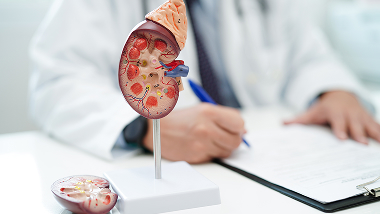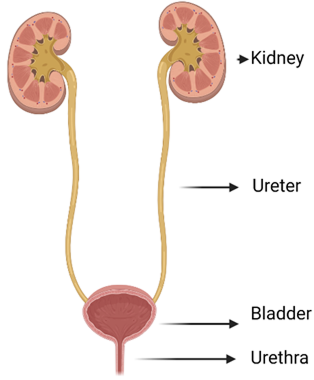
11 Jul Understanding Kidney Trauma and Permanent Disability
Kidney injury after trauma usually indicates severe force. Blunt injuries are most common. In isolation, they can usually be managed without surgery. Chronic kidney disease is the major long term complication.
Kidney injury occurs in 1-5% of all traumas that present to the emergency department. A study from Melbourne found that males comprised 75% of these patients and tended to be in their 20s. Incidence for men generally decreased with age. The average age for women was 33 years old and by contrast there was no decrease in incidence across different age groups.
Mechanisms of kidney injury
Blunt force trauma is most common (>95% of cases) – In 65% of these cases, they are from motor vehicle or motorcycle accidents. In car accidents the force of a seatbelt tightening during a collision can exert significant pressure on the abdomen, leading to kidney damage. Falls and pedestrian accidents are the next most common causes. Causes of sporting accidents vary by location. Australian Rules Football was common in those presenting to The Alfred Hospital (Melbourne), whereas surf related injury was more dominant in presentations in the Gold Coast (Queensland).
Penetrating injuries are less common (4% of cases) – Examples include stabbing or gunshot injury. These injuries may occur in vehicle accidents in extreme circumstances.
Kidney injury can be graded by use of CT and ultrasound scans. These may demonstrate bruising, laceration, or tearing of the blood and nerve supply to the kidney. Blood tests (for kidney function) and urine tests (looking for blood in the urine) also help form a more complete picture.
Treatment
The kidneys are usually well protected by surrounding organs, dense muscle and the spine. Therefore kidney trauma is indicative of significant applied forces. The most common associated injuries are rib fracture with punctured lung. While most kidney injuries in isolation can be managed without surgery, almost half require surgery due to other associated trauma. This includes orthopaedic and neurosurgical reasons.
What permanent disability is associated with kidney trauma?
In the acute phase of injury, if kidney surgery is required accidental injury to surrounding organs may occur especially to the ureter and bladder. Permanent impairment can also be calculated for this through the AMA Guides to the Evaluation of Permanent Impairment.
Many individuals recover fully from mild or moderate injuries, but severe trauma can lead to chronic kidney disease. This is defined by progressive irreversible loss of kidney function. Those with preexisting chronic kidney disease appear to be less able to make adaptive repairs after trauma. If the kidneys fail, patients may end up on dialysis or receive a transplant. Both of these therapies result in significant impairment of quality and quantity of life. This is recognised in the AMA Guides.
What permanent disability is associated with kidney trauma?
In the acute phase of injury, if kidney surgery is required accidental injury to surrounding organs may occur especially to the ureter and bladder. Permanent impairment can also be calculated for this through the AMA Guides to the Evaluation of Permanent Impairment.
Many individuals recover fully from mild or moderate injuries, but severe trauma can lead to chronic kidney disease. This is defined by progressive irreversible loss of kidney function. Those with preexisting chronic kidney disease appear to be less able to make adaptive repairs after trauma. If the kidneys fail, patients may end up on dialysis or receive a transplant. Both of these therapies result in significant impairment of quality and quantity of life. This is recognised in the AMA Guides.

Figure 1 Anatomy of the kidneys
Conclusion
Understanding kidney trauma and its implications is essential when assessing permanent disability. Kidney injury is indicative of significant trauma. While it can usually be managed without surgery, permanent ongoing disability in the realm of chronic kidney disease needs to be monitored for.
Dr Jian Cheng is a well experienced Adult Nephrologist and General Medicine Physician. He has expertise in the management and treatment of chronic/polycystic kidney disease, acute kidney injury, and kidney stones.


